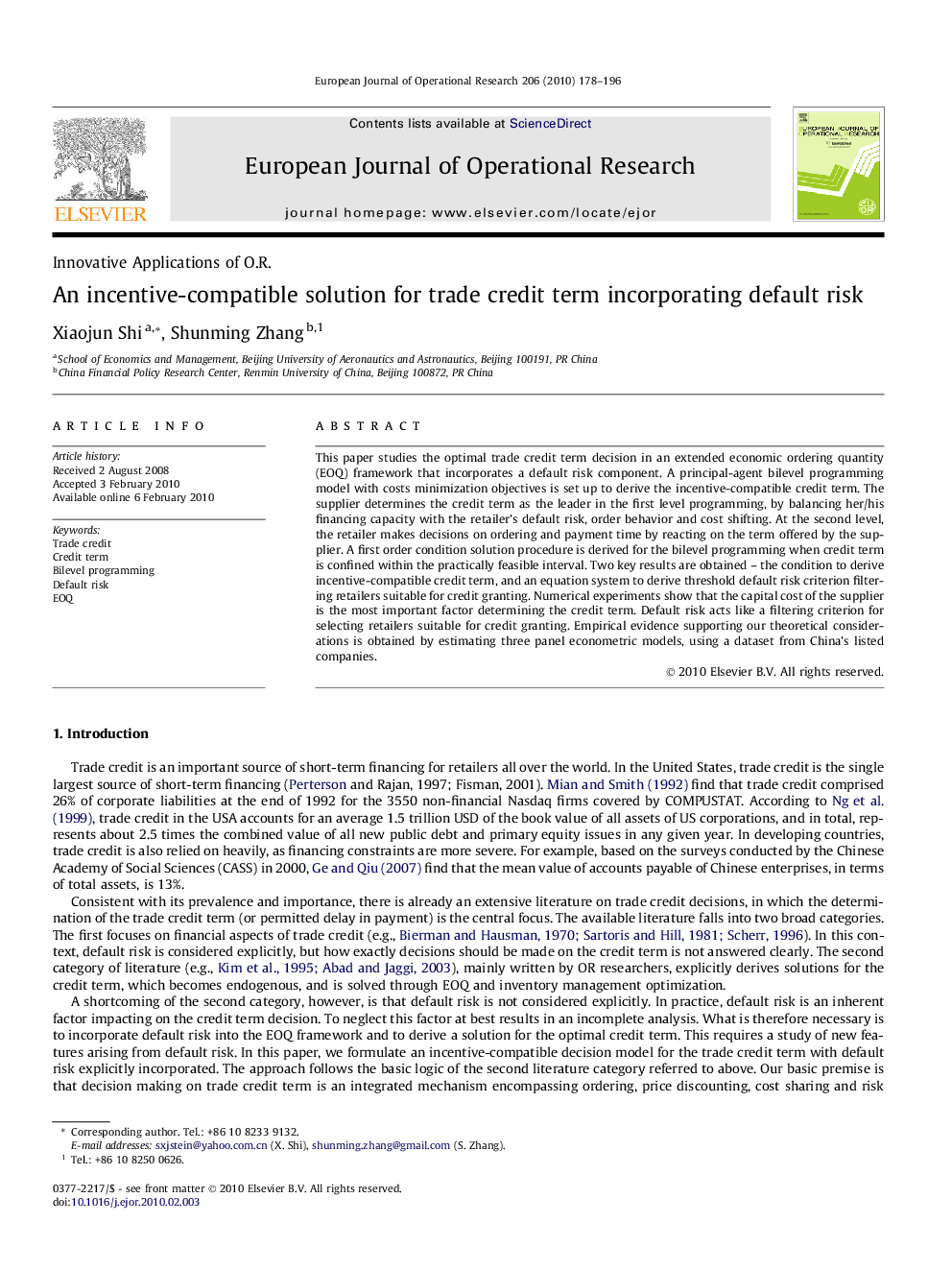| Article ID | Journal | Published Year | Pages | File Type |
|---|---|---|---|---|
| 481779 | European Journal of Operational Research | 2010 | 19 Pages |
This paper studies the optimal trade credit term decision in an extended economic ordering quantity (EOQ) framework that incorporates a default risk component. A principal-agent bilevel programming model with costs minimization objectives is set up to derive the incentive-compatible credit term. The supplier determines the credit term as the leader in the first level programming, by balancing her/his financing capacity with the retailer’s default risk, order behavior and cost shifting. At the second level, the retailer makes decisions on ordering and payment time by reacting on the term offered by the supplier. A first order condition solution procedure is derived for the bilevel programming when credit term is confined within the practically feasible interval. Two key results are obtained – the condition to derive incentive-compatible credit term, and an equation system to derive threshold default risk criterion filtering retailers suitable for credit granting. Numerical experiments show that the capital cost of the supplier is the most important factor determining the credit term. Default risk acts like a filtering criterion for selecting retailers suitable for credit granting. Empirical evidence supporting our theoretical considerations is obtained by estimating three panel econometric models, using a dataset from China’s listed companies.
